- Home
- Scott Mariani
The Doomsday Prophecy Page 3
The Doomsday Prophecy Read online
Page 3
‘You’re back early,’ she said, looking up and smiling.
‘Where is she?’
‘Not here yet.’
‘I thought it was quiet. Expected she’d have got in by now.’
Jane Bradbury stabbed her trowel in the ground, stood up with a grunt and dusted the earth off her hands. ‘That looks good,’ she said, noticing his glass. He passed it to her and she took a sip and smacked her lips. ‘I wouldn’t worry about it,’ she said. ‘You know what she’s like. She probably stopped off to stay with some friend in London.’
‘Why couldn’t she just come straight here? She’s always with some friend or other. We hardly ever see her.’
‘She’s not a child any more, Tom. She’s twenty-six years old.’
‘Then why does she act like one?’
‘She’ll call. Probably turn up tomorrow like the bad penny.’
‘You indulge her too much,’ he said irritably. ‘You’ve even prepared her favourite pudding.’
His wife smiled. ‘You indulge her as much as I do.’
Bradbury turned towards the house. ‘The least she could do is bloody well let us know where she is.’
Chapter Six
The Island of Paxos, Greece
The third day
Zoë Bradbury woke up with a gasp. The first thing she was aware of was the strong sunlight in her face, making her blink. She tried to focus, but her vision was hazy. Where was she?
After a minute the cloudiness melted away and things were clearer. She was in a bedroom. Was it hers? She couldn’t remember, and that was the strangest realisation.
She was lying on a bare mattress, a rumpled sheet draped over her. She sat up in the bed and suddenly felt the sharp pain cutting through her side. She winced and clutched at her ribs. It felt as though one was cracked. Her head was on fire and her mouth was dry. She looked down at her palms. They were scuffed and tender, as though she’d landed heavily and put her hands out to protect herself.
Flashes. Bright lights. Sounds. Places and people. It was all there in her mind, but jumbled and obscure, all shadows and echoes. She vaguely remembered the sensation of falling. Then the impact to the head. She rubbed it and felt the bruise. Struggled to clear her mind. Nothing would come. She blinked and shook her head. Still nothing.
Panic began to grip her. She couldn’t remember anything. Didn’t know anything about what she was doing here, or, she realised with horror, even who she was. Something had happened to her. A bad fall. Some kind of damage inside her head. She prayed it was only temporary.
All she knew was that she was in danger. It was the instinctive knowledge of a trapped animal in the presence of a predator.
That instinct helped her focus. Get out of here first. Worry about the rest later.
There was nobody in the room with her. But as the breeze ruffled the drapes she saw the man in the chair on the balcony outside.
The first thing she noticed about him was the gun. It was clasped loosely in his hand, a big boxy thing, pointing right at her. He was sitting facing her, leaning right back in a deck chair in the sunshine, and at first she thought he was staring at her through his wraparound shades. But his chest was heaving slowly, and from the way he didn’t respond to her waking up she guessed he was asleep. At his feet were a bottle of Ouzo and an empty glass. His fair hair blew lightly in the sea breeze.
Zoë struggled out of the bed, clenching her teeth against the tearing pain in her side. She planted one foot on the tiled floor, then the other. The tiles were cool against her soles.
The man didn’t move.
She slowly stood up and stepped away from the bed. Her head was spinning wildly and she reached out to steady herself. She saw that she was fully dressed, in white trousers and a yellow top. The clothes felt grubby on her skin, as though she’d been sleeping in them for a couple of days. The right knee of the trousers was ripped, and there was a smear of dirt up her right side where the pain was. From the fall, she guessed.
Wobbly on her feet, she reached for the pair of heeled sandals by the bed. They matched the yellow top. Were they hers? She didn’t know. She carried them by their straps as she crept towards the door, praying the man in the chair wouldn’t wake up.
When she grasped the door handle and felt its initial resistance, she was sure the door would be locked. But then it turned and her heart surged with excitement. The door opened without a sound. There was a hallway outside, and a flight of stairs leading down. She tiptoed across the hall and peered down over the metal rail into the stairwell. Voices, far away somewhere in the house. She heard a woman talking, and a man laugh.
Her heart was hammering now. She started down the stairs, wincing at every step, her bare feet padding silently on the ceramic tiling. The fear sharpened her mind. She had no idea where she was, but she knew she had to get away from this place.
She made it downstairs without anyone hearing. Nobody had come running from the bedroom. She was safe – so far.
At the bottom of the stairs was another door. It was open, and bright light was shining in from outside. She hobbled out, clutching the shoes and her ribs, and found herself standing on a little terrace with potted plants and flowers. Down three steps was the white pebbled beach. The stones were sharp against her feet, and burning hot. She pulled on the shoes. They fitted her perfectly, even though they seemed like a stranger’s.
She crept down the beach and looked back at the house. It was a pitted white stone block with shuttered windows and a red tile roof. Through the railings of the first-floor balcony she could see the back of the man’s deck chair. Behind the house, a wooded incline rose up steeply to the cliff above. There was no way she could climb it. She looked around her in desperation. The beach was empty. There was a long ramshackle wooden jetty with a small motor boat moored up to it, bobbing gently on the swell.
She headed for it, her steps quickening. She stumbled in the slim three-inch heels. Kept glancing back at the house. Nobody. She was getting away.
She made it to the jetty. The boards were solid and she could run better than on the loose stones and sand. She hurried on, the pain in her side forgotten now.
That was when she heard the yell. It came from the house. A man’s voice, loud and full of rage. She gasped and spun round. Her heart jumped. It was him – the fair-haired man from the balcony. The gun was in his hand. He bounded down the steps to the beach and sprinted towards her, screaming.
Then more of them came from the house. A woman and two more men. The woman pointed at her. They all started running. More yells.
She was halfway across the jetty. She could make it to the boat. Could she get the outboard motor started? Would they shoot her? What did these people want from her? Her legs were shaking as she stumbled along.
Then she fell. She sprawled across the rough wood and felt her ankle twist. Her heel was caught in a gap in the planking. She jerked and struggled. It was jammed tight. She reached down and tried to tear the shoe off.
They were coming. Footsteps thundered on the jetty, and then there was a gun pressing hard into the back of her neck, heavy breathing in her ear. She looked up to see the man’s face contorted in anger, teeth bared.
The others caught up.
‘What the hell happened?’ one voice said.
‘The bitch came round,’ the man with the gun snapped back over his shoulder.
‘And what the fuck were you doing?’ the woman’s voice demanded. ‘Sleeping?’
He ignored her and yanked Zoë to her feet. The four of them marched her roughly back along the jetty. She was kicking and screaming hysterically. They said nothing to her. Dragged her limping back to the house, back up to her room, and shoved her down on the bed. Her ankles and knees were roughly bound together with duct tape. The fair-haired man thrust the pistol into the back of his belt and grabbed her right wrist. His grip was crushing. He jerked her arm up and there was a rattle of metal as he cuffed it to the bed frame. Then the left arm.
She fought them wildly. ‘What do you want with me? Let go of me! What do you want with me?’
Then they pressed a length of the tape across her mouth, stifling her screams. Tears poured uncontrollably down her face.
The man took the gun out of his belt and pressed the muzzle to the side of her head. She tried to shrink away from the cold steel, screwing her eyes shut.
Then he smiled and took the gun away. They all stood back and watched her. She was too exhausted to fight any more. Her breath came in gasps and she felt she was going to faint.
The woman had her hands on her hips, head cocked to one side, a thin smile on her lips. ‘Leave her a while,’ she said. ‘I have to make a call. Then we can go to work on her.’
‘What do you want?’ Zoë tried to scream again through the gag.
Nobody answered as they filtered out one by one.
The fair-haired man was the last to leave the room. ‘I can hardly wait to get started,’ he said, grinning down at her.
Chapter Seven
Oxford
The same day
Ben surfaced slowly from a murky sleep filled with threatening dreams, and his mind drifted back into focus. He remembered now. He was in his new flat. Oxford was hardly a strange city to him, but it felt weird actually to be living here again after so many years. He wouldn’t be home in Ireland until December.
Fighting away the numbing torpor that made him want to crawl back deep under the covers, he kicked his legs out of the bed. He shrugged on a tracksuit top, walked through to the living room, stepped over the mess of half-unpacked luggage that was in there and headed for the kitchen. The flat was tucked into a secluded block of apartments in the quiet northern end of the city. It felt modern and compact, so different from the rambling old seaside house in Ireland, with its stone floors and draughty fireplaces.
He listened to the twitter of birds and the distant traffic rumble as he made some coffee. No milk, no sugar, nothing to eat. He left the radio off. He wasn’t interested in whatever might be happening in the world. He sat for a while at the small table in his kitchen, the coffee cup hot between his hands, emptying his mind, trying not to think about things. Most of all, trying not to think about the two bottles of ten-year-old Laphroaig in his suitcase – and how easy it would be to walk over there and open one of them. Too easy. He knew he’d get there in a moment of weakness, when the demons came. But this wasn’t it.
At three minutes to eight he stood up, walked back to the living room and found the fabric Tesco shopping bag he’d left on one of the armchairs the night before. He picked up the heavy bag, carried it across the room and dumped the contents out across his desk. Books spilled everywhere.
There were over twenty theology textbooks in the heap, and he’d set himself the task of reading them all in the next few days. Acres of Hebrew and Latin to pore over. Thousands of pages of abstruse philosophy. Aristotle. Spinoza. Wittgenstein. Stacks of essays and interpretations of Bible scripture. It was a mountain of work, and he relished the prospect. It would keep his mind occupied and get him in training for when term began in October. Nineteen years was a long time to catch up on.
He worked for six straight hours, stretched and stood up and then headed for the tiny bathroom. After a quick shower he pulled on a pair of jeans and a white cotton shirt, and ate a stale tuna sandwich that he’d bought at a filling station on the M40 the day before. Sometime after two he left the flat and did the half-hour walk into the heart of the city in twenty minutes. He headed straight towards the Bodleian, the University’s grandest and oldest library, just off the city centre.
The sun was beating down strongly. As he walked, he took off his jacket and slung it over his shoulder.
That was the moment, strolling through the old city under the clear blue sky, when it hit him.
What is this feeling?
He stopped. It was the strangest thing.
I’m just a normal person. I’m a student about to start college, walking to the library. That’s all I am.
Suddenly, and for just one wonderful instant, it all seemed possible. That he could live the simple life he’d dreamed about, far away from the violence and ugliness he’d been immersed in for what seemed like an eternity. That he could be happy again one day, that the pain would come to an end.
It was just a taste of that happiness, a simple taste of normality and freedom and the promise of some kind of life again. He knew there would be more bad days ahead – days when he didn’t even want to go on living. But here, now, for the first time in months, he could feel the sun on his face and he was thankful to be alive. Maybe the worst of the grief was over. Maybe he was coming through. Maybe he was going to be OK.
It was what she would have wanted, he thought. He saw her face in his mind, and felt the loss and guilt stab deep inside him. He wanted to reach out and touch her. Then she smiled, and it made him want to cry but smile too.
Oh, Leigh. I’m so sorry for what happened.
I know, her distant voice replied in his mind.
He was still smiling sadly to himself as he walked through the stone archways of the Bodleian. The main reading rooms smelled of old leather and burnished wood. He approached the desk and showed his card to the librarian.
Twenty years before, the women behind the desk had been notorious battleaxes with intimidating stares that had frightened most of the students. He’d been idly wondering whether he was going to find them still here, greyer, fatter, and even more formidable.
The librarian flashed a smile at him. She was about twenty-eight or twenty-nine, with sandy curls tied up loosely in a ponytail, little wisps hanging down and framing her face. It was a pretty face, open and natural. She glanced twice at his name on the card, and smiled again. He requested the book he was after, and she told him in a low voice that it would have to be fetched up from the bowels of the library.
He thanked her, and spent the next half-hour flipping through periodicals in a booth in the reading-room across from the main desk. Every so often, he was aware that the librarian was glancing over at him. Then another member of staff brought him the book he’d come to read, and he didn’t see her again.
It was late afternoon by the time he left the library. The heat and sweat of the bustling city centre was a strong contrast to the cool silence of the Bodleian reading rooms. He filled his lungs with the smell of the old city.
‘Well, I’m back,’ he said quietly to himself.
Chapter Eight
Greece
The fourth day
‘Is this line secure? I have to talk to you.’
‘It’s secure. Why haven’t you reported sooner, Kaplan?’
‘We’ve had a problem here.’
A pause. ‘The girl?’
‘I’m afraid so.’
‘You killed her, didn’t you? You had strict orders to take her alive.’
‘She’s alive.’
‘Then what?’
‘She’s alive but she’s no use to us.’
‘You’re trying to tell me you screwed up.’
‘We had her, OK? She was right in our hands. But she was hard to catch. She was on a motorcycle. We chased her for about three miles, from the villa up into the hills. Those roads are twisty, and there’s a lot of forest. We tried to head her off, but she panicked. She went off the road, where we couldn’t follow. I left Ross and Parker in the vehicle and took Hudson with me. We went in after her on foot.’
‘And she got away.’
‘No. We got her. She didn’t get far before she came off the bike.’
‘What’s the damage?’
‘No serious external damage. A few cuts and grazes. But she suffered a head trauma, and that’s the problem. She was unconscious a long time, nearly thirty hours. Came round yesterday. But she has some kind of traumatic amnesia. She can’t answer our questioning, because her memory has blanked out.’
‘You’re sure you got the right person?’
‘One hundred per cent sure.�
�
‘How bad is she?’
‘We can’t really say. The amnesia might be short term.’
‘You’d better hope so. Have you any idea how serious this is?’
‘It’s under control.’
‘Doesn’t sound much like that from this end, Kaplan. If she doesn’t regain her memory soon, you’ll have to get her back here where there are proper facilities.’
‘There’s another small problem.’
‘You mean this gets worse?’
‘All her things have disappeared from the villa. We went there to collect everything. It’s not there any more. Luggage, papers. All gone. She wasn’t meant to be leaving until morning. It means we have to replan. It can’t look like an accident any more.’
‘Nice work, Kaplan.’
‘One more thing. There was someone at the party, some boyfriend, we think. He’d been hanging around. We didn’t think anything of it. But then at the party he spilled her drink just after Hudson spiked it. Looked deliberate.’
‘So he knows something. Who is he?’
‘Just a local guy, as far as we know. One of her many boyfriends. Probably married, so he was real discreet. The villa has a linked garage, and he always parked his Mercedes there where we couldn’t see it. Now we think he took her things away, in the car, earlier on. And we’re pretty sure she was RVing with him when we took her.’
‘So he could know everything.’
‘Basically. But there was no way we could have known that.’
‘You have any information at all on this person?’
‘We’re working on it.’
‘You’re going to have to rescue this situation quickly. We’re on the clock here. People will start to miss her.’
‘We’ll find him.’
‘You’d better. And when you do, you contain the situation. There might still be a chance of saving this mess. This goes up in smoke, you’re dead. Understand?’

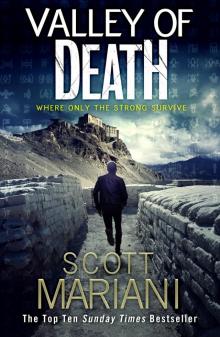 Valley of Death
Valley of Death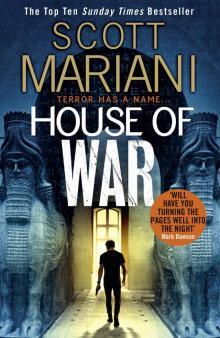 House of War
House of War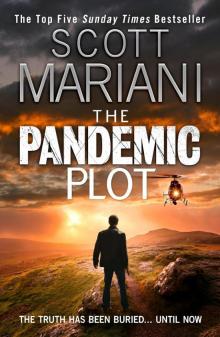 The Pandemic Plot
The Pandemic Plot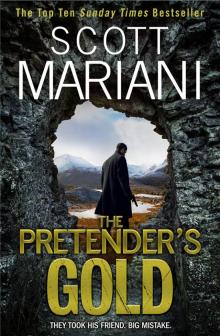 The Pretender's Gold
The Pretender's Gold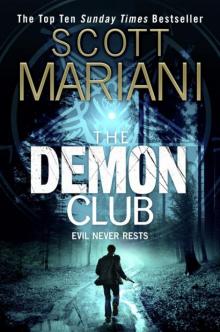 The Demon Club
The Demon Club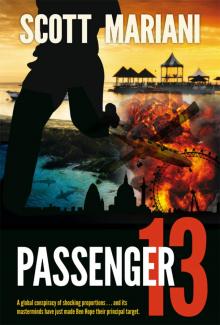 Passenger 13 (Ben Hope eBook originals)
Passenger 13 (Ben Hope eBook originals)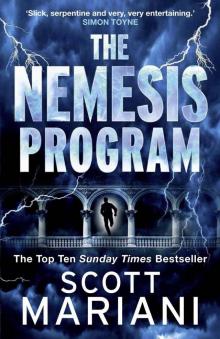 The Nemesis Program_Ben Hope
The Nemesis Program_Ben Hope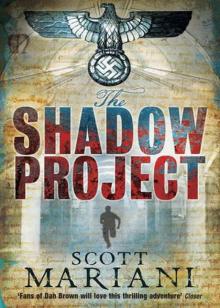 The Shadow Project
The Shadow Project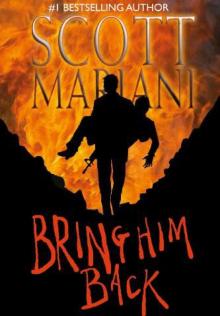 Bring Him Back
Bring Him Back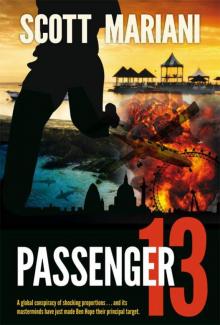 Passenger 13
Passenger 13 Sacred Sword (Ben Hope 7)
Sacred Sword (Ben Hope 7)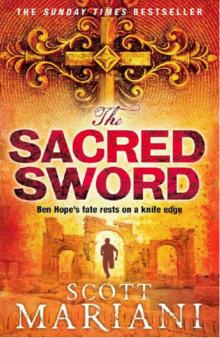 The Sacred Sword (Ben Hope 7)
The Sacred Sword (Ben Hope 7)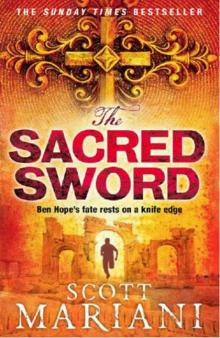 Sacred Sword
Sacred Sword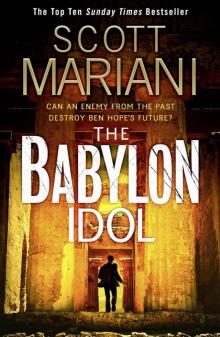 The Babylon Idol
The Babylon Idol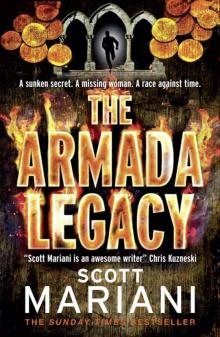 The Armada Legacy
The Armada Legacy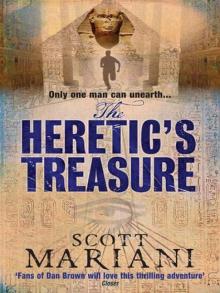 The Heretic's Treasure
The Heretic's Treasure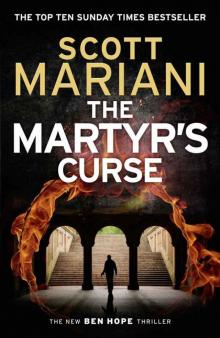 The Martyr’s Curse
The Martyr’s Curse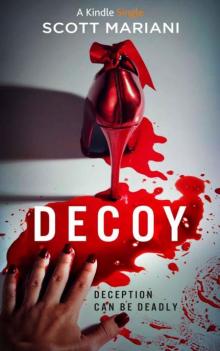 DECOY (Kindle Single)
DECOY (Kindle Single)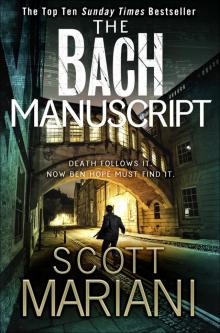 The Bach Manuscript
The Bach Manuscript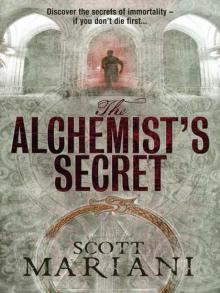 The Alchemist's Secret
The Alchemist's Secret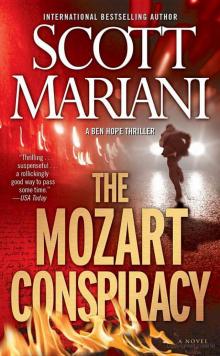 The Mozart Conspiracy: A Novel bh-2
The Mozart Conspiracy: A Novel bh-2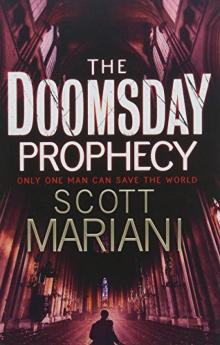 The Doomsday Prophecy
The Doomsday Prophecy The Ben Hope Collection: 6 BOOK SET
The Ben Hope Collection: 6 BOOK SET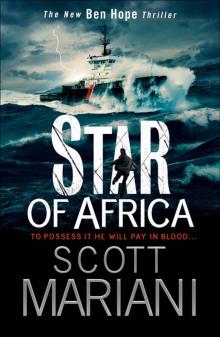 Star of Africa (Ben Hope, Book 13)
Star of Africa (Ben Hope, Book 13)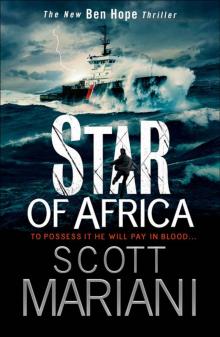 Star of Africa
Star of Africa The Forgotten Holocaust (Ben Hope, Book 10)
The Forgotten Holocaust (Ben Hope, Book 10)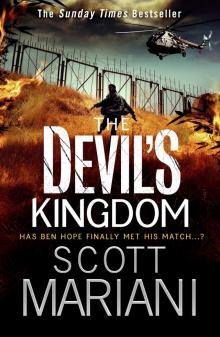 The Devil's Kingdom
The Devil's Kingdom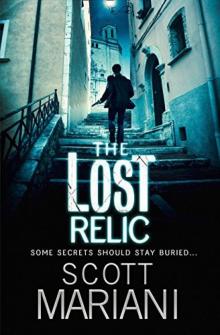 The Lost Relic
The Lost Relic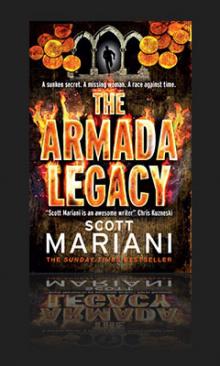 The Armada Legacy bh-8
The Armada Legacy bh-8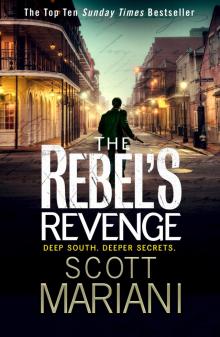 The Rebel's Revenge
The Rebel's Revenge The Forgotten Holocaust
The Forgotten Holocaust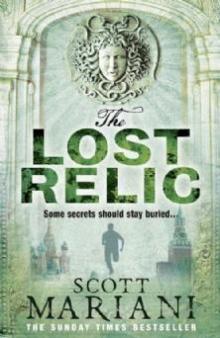 The Lost Relic bh-6
The Lost Relic bh-6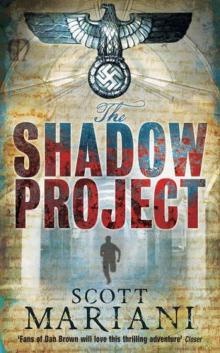 Ben Hope 05 - The Shadow Project
Ben Hope 05 - The Shadow Project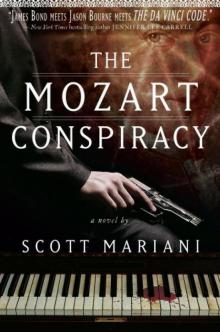 The Mozart Conspiracy
The Mozart Conspiracy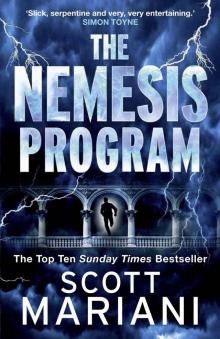 The Nemesis Program
The Nemesis Program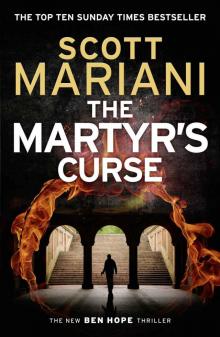 The Martyr’s Curse (Ben Hope, Book 11)
The Martyr’s Curse (Ben Hope, Book 11) THE TUNNEL: A Ben Hope Story
THE TUNNEL: A Ben Hope Story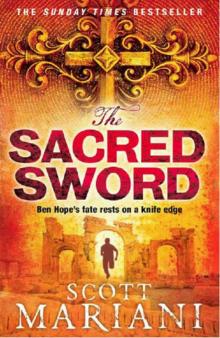 The Sacred Sword bh-7
The Sacred Sword bh-7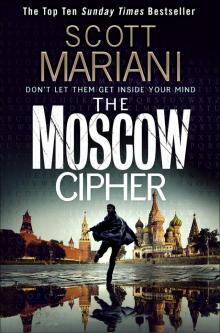 The Moscow Cipher
The Moscow Cipher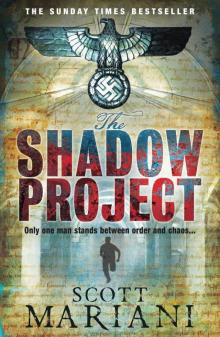 The Shadow Project bh-5
The Shadow Project bh-5 The Tunnel
The Tunnel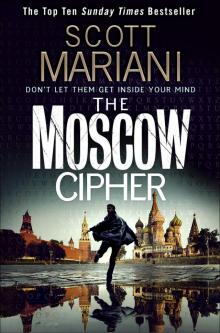 The Moscow Cipher (Ben Hope, Book 17)
The Moscow Cipher (Ben Hope, Book 17)